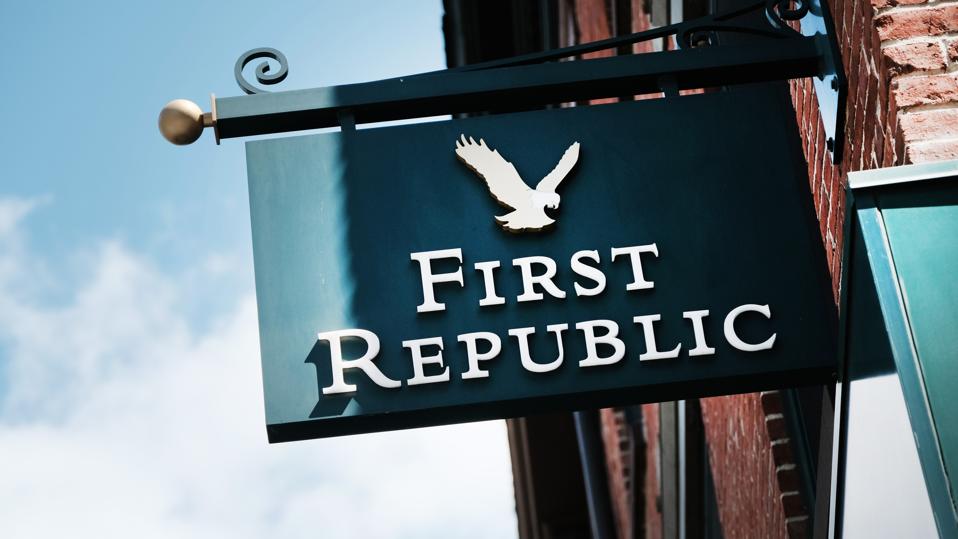Federal regulators are preparing to seize control of San Francisco-based First Republic Bank, according to multiple reports, as the institution appears on track for a possible collapse in one of the biggest banking busts in American history.

A sign for a First Republic bank branch is seen in Manhattan on Monday in New York City. (Photo by Spencer Platt/Getty Images
Reuters first reported Friday afternoon that the Federal Deposit Insurance Corporation is expected to swiftly take the bank under receivership, following a stock crash.
The share price for First Republic’s stock declined some 43% on Friday alone to close at $3.51 following deep selloffs earlier this week—the stock is down around 98% from its 52-week high.
The FDIC has started reaching out for bids from potential buyers if it takes the bank under receivership, according to CNBC, which reported receivership is likely but there is still hope for an outcome that doesn’t require the federal government seizing the bank.
The FDIC did not immediately respond to a request for comment from Forbes.
Crucial Quote
“We are engaged in discussions with multiple parties about our strategic options while continuing to serve our clients,” the bank said in a statement following reports of a potential seizure.
Key Background
First Republic—a regional bank largely supported by wealthy clients—has been reeling ever since similar institutions like Silicon Valley Bank and Signature Bank collapsed in mid-March, raising significant concerns among the American public about the stability of small- and mid-sized banks.
The Biden Administration has repeatedly said there are no major red flags about the health of the financial sector, while there are no signs the nation’s largest banks are in distress. First Republic appeared to be back on the right track last month after the four biggest U.S. banks—JPMorgan Chase, Bank of America, Citigroup and Wells Fargo—each made $5 billion deposits, leading to a short-lived stock recovery.
But concerns about the bank’s stability persisted, and significantly worsened this week after it reported just $104.5 billion in deposits during the first quarter—down 41% from the same period last year and falling well short of analysts’ expectations of $136.7 billion in deposits.
This story was first published on forbes.com and all figures are in USD.
Forbes Australia issue no.4 is out now. Tap here to secure your copy or become a member here.
Look back on the week that was with hand-picked articles from Australia and around the world. Sign up to the Forbes Australia newsletter here.


